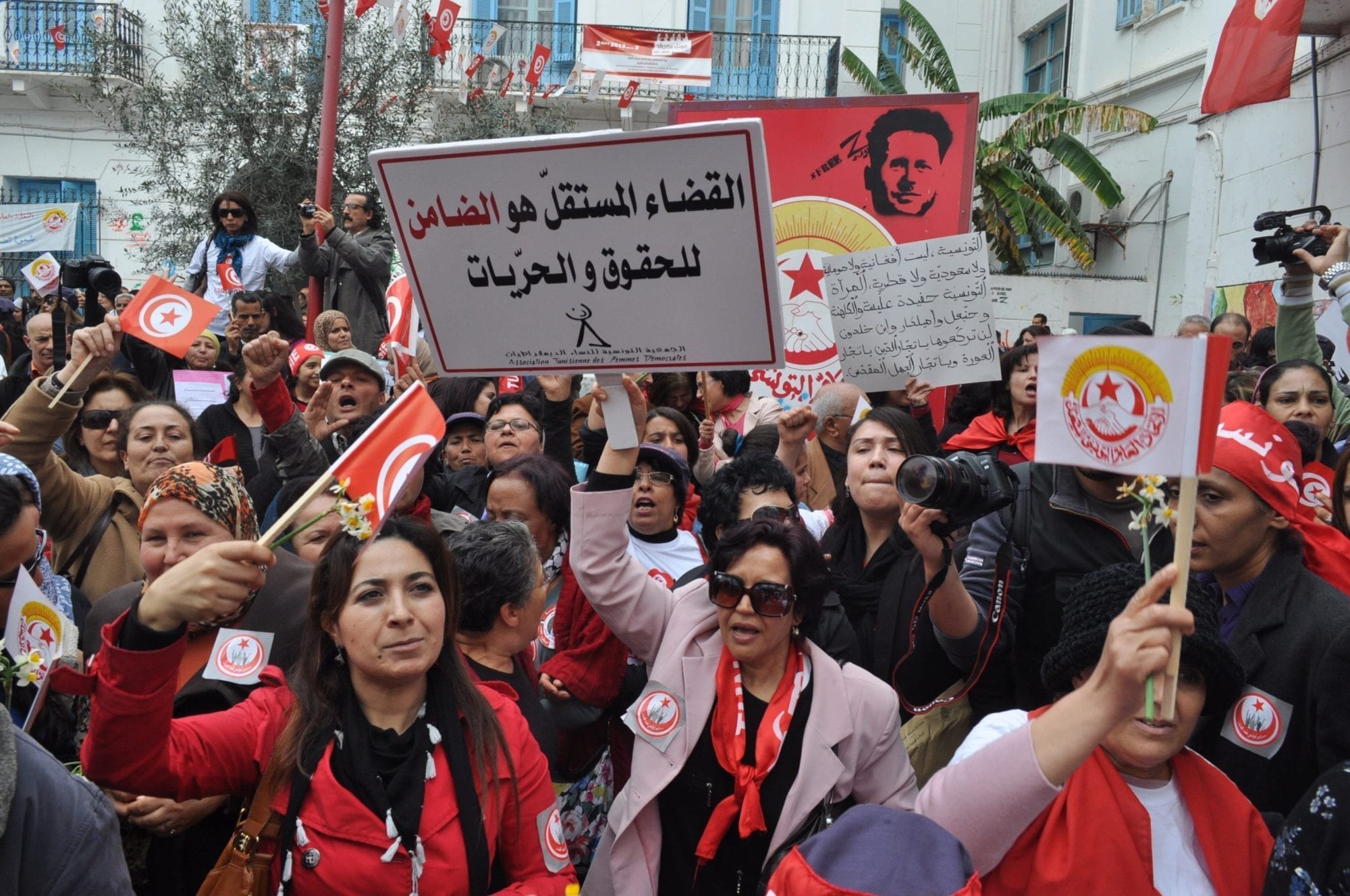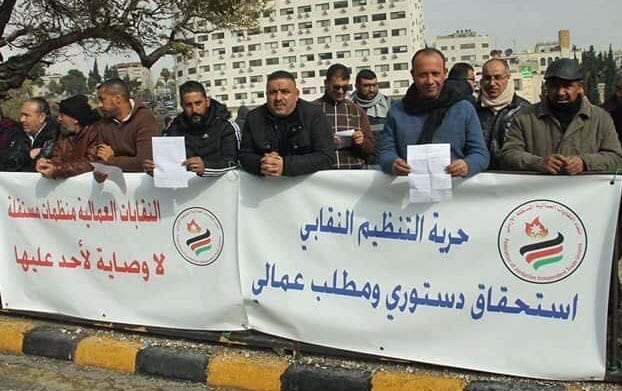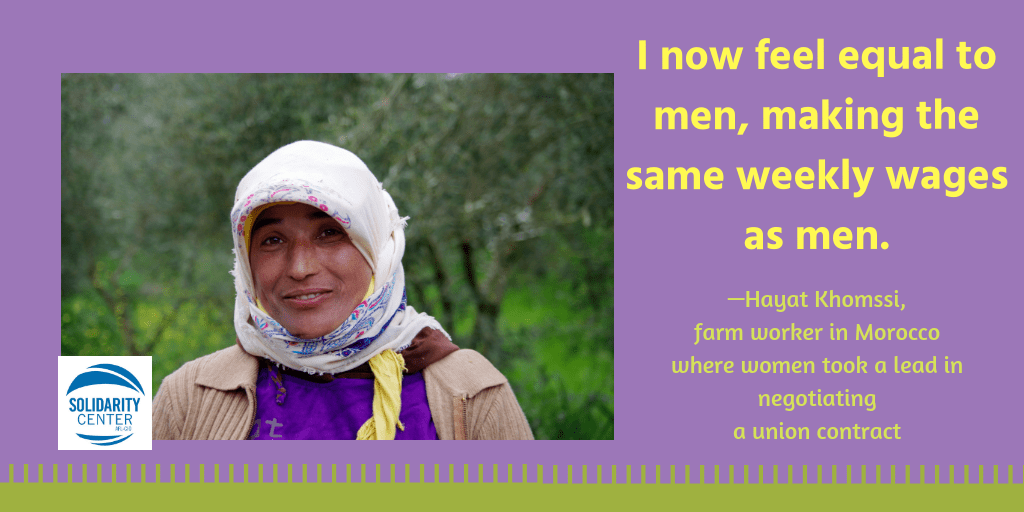Jordan’s Senate is set to consider amendments to the country’s labor code that will restrict worker’ fundamental rights to freedom of association and collective bargaining and that fail to address Jordan’s longstanding limitations on worker rights, according to the...
Middle East & North Africa
 In the Middle East and North Africa (MENA), the Solidarity Center supports democratic unions and civil society organizations as they defend the human right to freedom of association, promote worker equality and raise awareness of the global economic context in which they labor.
The rich history of union activism in much of the MENA region goes back to the 1920s, when labor movements formed the working-class base of the struggle against colonial authorities. Today, global economic and political dynamics are eroding the universal human rights that democratic trade unions defend. Government efforts to liberalize come at a great cost: the erosion of worker rights and economic fairness.
While in some MENA countries, cumbersome laws facilitate government intervention in trade union operations, generally excluding or discriminating against certain workers based upon political ideology, gender, national status or job class. The Solidarity Center partners with many regional trade unions and nongovernmental organizations (NGOs) to improve domestic labor law and its implementation, and to give workers a voice in shaping the economic and political development of their countries.
Regionwide programs strengthen workers’ political and economic rights by promoting rule of law, defending freedom of association, building capacity and internal union democracy, and encouraging trade union organizing. Dedicated to advancing workers’ human rights, each trade union and civil society organization in the MENA region grows stronger through alliances with one other and within the global labor movement. This strategic approach is central to the Solidarity Center’s work in MENA.
In the Middle East and North Africa (MENA), the Solidarity Center supports democratic unions and civil society organizations as they defend the human right to freedom of association, promote worker equality and raise awareness of the global economic context in which they labor.
The rich history of union activism in much of the MENA region goes back to the 1920s, when labor movements formed the working-class base of the struggle against colonial authorities. Today, global economic and political dynamics are eroding the universal human rights that democratic trade unions defend. Government efforts to liberalize come at a great cost: the erosion of worker rights and economic fairness.
While in some MENA countries, cumbersome laws facilitate government intervention in trade union operations, generally excluding or discriminating against certain workers based upon political ideology, gender, national status or job class. The Solidarity Center partners with many regional trade unions and nongovernmental organizations (NGOs) to improve domestic labor law and its implementation, and to give workers a voice in shaping the economic and political development of their countries.
Regionwide programs strengthen workers’ political and economic rights by promoting rule of law, defending freedom of association, building capacity and internal union democracy, and encouraging trade union organizing. Dedicated to advancing workers’ human rights, each trade union and civil society organization in the MENA region grows stronger through alliances with one other and within the global labor movement. This strategic approach is central to the Solidarity Center’s work in MENA.Tunisia Public Workers Win Wage Increases
Nearly 700,000 public employees in Tunisia won a salary increase after waging mass actions for months, including a one-day general strike, in which they protested the erosion of their ability to support their families as their salaries failed to keep up with rising...
Women Farm Workers in Morocco Gain Equal Voice at Work
Nearly half of the 4 million workers who labor in Morocco’s agricultural fields are women, yet they receive less pay and are granted fewer opportunities to improve their wages or working conditions than their male co-workers. But through their union, the Confédération...



